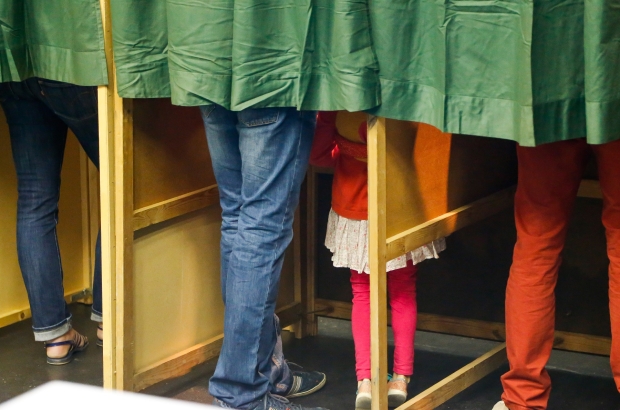- Daily & Weekly newsletters
- Buy & download The Bulletin
- Comment on our articles
Flanders prepares to hold first local elections without obligation to vote
Flanders is preparing to test its non-mandatory voting policy for local elections next year.
The region voted to remove the obligation to vote in local elections beginning in 2024, but it will still be mandatory to vote in regional ones.
“A lot of attention will be focused on these local elections in Flanders,” Jean-Benoit Pilet, a political scientist at ULB, told RTL.
“If we see that there is a big abstention, I don't think that will convince many people at other levels of government to do the same thing. On the other hand, if voters turn out in large numbers despite the fact that there is no obligation to do so, the debate could be reopened.”
Belgium boasts high participation rates in elections, thanks in part to compulsory voting: 75% of Belgians are expected to go to the polls in 2024. The rest will likely abstain - and pay a possible fine - or vote blank.
But while the obligation is being removed for local elections, Pilet said that this first test will be complicated.
“It will be a very special context because it will be only a few months after the federal, regional and European elections, and we will no doubt be involved in very long government negotiations, so that could increase mistrust, and abstention or even protest votes for those who don't vote,” Pilet said.
“There will be a lot of attention paid to what happens in Flanders. But if we look at other countries that have made voting non-mandatory, we should see a fall in turnout of 20% to 30%. We saw this in the Netherlands and Chile a few years ago.”
A large number of voters have their votes registered but the number is falling, particularly in towns and cities and in provinces where the socio-economic situation is more difficult.
“Even now, despite compulsory voting, voter turnout is down to around 75%-80%, so this is already a sharp decline,” said Pilet, adding that while making voting mandatory can bring people back to the polls, it can also hide citizens’ growing dissatisfaction with politics.
“It's perhaps the tree that hides the forest, because if this vote were no longer compulsory, there would be a whole series of people who would express their dissatisfaction or disinterestedness by no longer voting.
"That's the double-edged sword of compulsory voting: it's good because it brings people back to the ballot box, people who wouldn't normally vote, and in particular the most disadvantaged and vulnerable. But at the same time, it hides the fact that there is more discontent than in a democracy that would spontaneously bring 80% of voters to the polls.”
Other estimates are lower than the 75% expected to vote in 2024, with a UHasselt survey titled ‘My Municipality and Me’ putting the figure closer to 69%.
In that survey, 69% of Flemish people said they will definitely vote, 8% say they will definitely not and 23% have not yet decided.
“Each party will have to defend democracy in itself and explain why voting is important,” Flemish minister of home affairs Bart Somers (Open VLD) said. “Voters will not vote because they are obliged to, but because they want to.”
Somers said compulsory voting in Belgium was somewhat eroded anyway, saying that at least 10% of people do not vote regardless of the obligation.
“I think it is a moral responsibility for every citizen to make use of their vote,” Somers said. “I think that moral responsibility is better fulfilled if political parties also know that they have to motivate people to vote.”
The new regulations only apply to local elections in Flanders, and therefore not in Wallonia or Brussels.
But Somers is looking beyond: “Hopefully these reforms are a harbinger for reforms at other levels.”

















